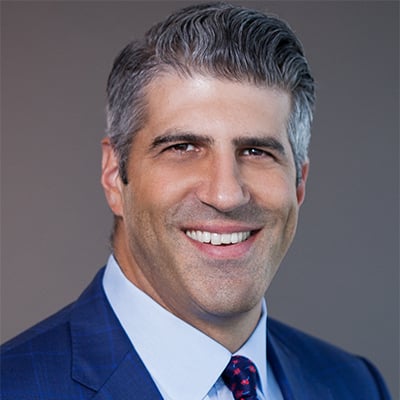DOJ Announces Policy Changes on Corporate Cooperation and Individual Accountability
On November 29, 2018, Deputy Attorney General Rod Rosenstein announced several changes to the Department of Justice’s policies regarding individual accountability in federal criminal and civil investigations. Rosenstein’s remarks, which were part of a speech given at the American Conference Institute's 35th International Conference on the Foreign Corrupt Practices Act, emphasized a more pragmatic and flexible approach to issues of individual liability in corporate investigations by modifying certain policies instituted by former Deputy Attorney General Sally Yates in 2015.
First, the revised policy reflects a focus in criminal cases on individuals who are “substantially involved in or responsible for” the criminal conduct. Under the prior policies, a corporation could not receive any cooperation credit unless it had provided the Department all relevant information about individual involvement in the relevant misconduct — regardless of the extent of the individual’s involvement and culpability. This “all or nothing” approach presented practical challenges for corporations — for example, where putative misconduct stretches over an extended period of years and there are disputes between what some evidence reflects (or does not reflect) in terms of historical culpability. With its focus on across-the-board cooperation in providing information on all employees potentially involved in misconduct, the prior policy also broadened the scope of potential conflicts between corporations and individual employees.
The new policy reflects a more flexible approach to cooperation in civil cases
Noting “concerns . . . about the inefficiency of requiring companies to identify every employee involved regardless of relative culpability,” particularly where the government and the corporation disagree on how to define the relevant misconduct, Rosenstein announced that the Department will now focus on gathering information regarding the most culpable individuals: “We want to focus on the individuals who play significant roles in setting a company on a course of criminal conduct. We want to know who authorized the misconduct, and what they knew about it.” Under the new policy, companies seeking cooperation credit “are encouraged to have full and frank discussions with prosecutors about how to gather the relevant facts.” Companies will not receive cooperation credit unless they are “operating in good faith to identify individuals who were substantially involved in or responsible for wrongdoing.”
The new policy also reflects a more flexible approach to cooperation in civil cases. Noting that the goals of civil enforcement differ from those of criminal prosecution, Rosenstein explained that “[w]hen criminal liability is not at issue, our attorneys need flexibility to accept settlements that remedy the harm and deter future violations, so they can move on to other important cases.” Requiring companies to investigate all potential civil liability of every employee involved proved to be “inefficient and pointless,” because the Department lacks the ability to pursue civil cases against every individual who may be civilly liable. The existing policy also contributed to delays in corporate resolutions.
By embracing a more flexible approach focused on identifying the most culpable individuals, the revised policies could remove formal obstacles that can impede corporate criminal and civil resolutions without benefiting the Department’s law enforcement objectives
Under the revised policy, the Department’s civil attorneys have discretion (subject to supervisory review) to award differing levels of cooperation credit. As a minimum requirement to receive any credit, a company must identify “all wrongdoing by senior officials, including members of senior management or the board of directors.” To earn maximum credit, a company must further identify all individuals who were “substantially involved in or responsible for” the misconduct. Where a company does not qualify for maximum credit, but has “meaningfully assist[ed] with the government’s investigation,” Department attorneys will have discretion to offer “some” cooperation credit. As in the criminal context, the Department is replacing the prior “all or nothing” approach to cooperation credit in civil cases with a more flexible policy.
The practical implications of these policy revisions are difficult to predict. It is clear that prosecuting and seeking civil recoveries for corporate misconduct, including against culpable individuals, remains a major priority, and that cooperation credit in both criminal and civil contexts requires a company to make a substantial commitment to provide information relating to culpable individuals. As Rosenstein’s comments acknowledged, the prior “all or nothing” approach was not always enforced in criminal or civil cases. In many respects, then, the policy revisions could be viewed as the Department aligning its formal guidance with its actual practices.
By embracing a more flexible approach focused on identifying the most culpable individuals, the revised policies could remove formal obstacles that can impede corporate criminal and civil resolutions without benefiting the Department’s law enforcement objectives. That said, there is still considerable subjectivity under the new guidance, as the Department will need to assess whether the company was operating “in good faith” to identify the “most culpable” individuals and whether it provided “meaningful” assistance. Clients with current or potential federal investigations should familiarize themselves with the new guidance and consider consulting an attorney.
This communication is distributed with the understanding that the author, publisher and distributor of this communication are not rendering legal, accounting, or other professional advice or opinions on specific facts or matters and, accordingly, assume no liability whatsoever in connection with its use. Pursuant to applicable rules of professional conduct, this communication may constitute Attorney Advertising.
© 2018 KIRKLAND & ELLIS LLP. All rights reserved.










